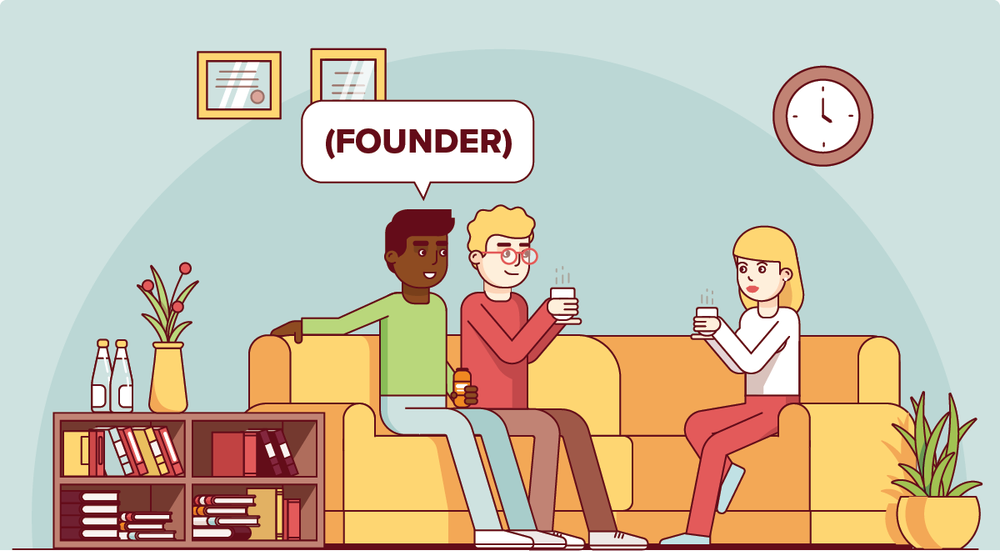Wil Schroter

Yesterday I was talking to one of my good friends, a Founder, who built a wildly successful startup doing 8-figures in revenue that said "The company is doing great, but after all of our rounds of investment, I've got a tiny sliver left of this company. I feel more like an employee than a Founder now."
What many Founders don't realize, is that this happens all the time. I've gone through it myself. In our efforts to grow our startups and in some cases just trying to keep them alive, we sacrifice that juicy "Founder equity" that we disproportionately award ourselves and all-too-often plunder in the name of growth.
Do Most Founders Lose Tons of Equity?
Not "most", but certainly an awful lot, even in what looks like a successful startup. This tends to happen at two junctures — when the Founder is first starting out and is highly leveraged by investors (it's hard to say "no" when we're broke) or as the startup begins to grow and the "growth rounds" of investment start to take huge chunks of equity. The only way to avoid this is to consistently raise at big valuations which very, very few startups can pull off.
What Does "Just an Employee Stock" Share Look Like?
Usually in the single digits or low double digits. Now, there's an argument of course that having "10% of Tesla" can make us a billionaire, but let's face it — we're not Elon Musk and our startup isn't Tesla. If we're having this conversation with ourselves we probably have very little idea when we'll ever see a liquidity event or how much more we're going to get diluted until that point.
Why is That Different Than Employees?
Unlike the rest of the team that can easily take their stock and go get another job, Founders tend to feel much more obligated to the company, as they are the connective tissue between the vision, investors, employees, and customers. If the CFO leaves people may ask why, but if the Founder/CEO leaves, every single person demands an answer.
Also unlike most employees, the Founders typically have created a ton of personal and financial risk leading up to this point, and in many cases, all of our chips are exclusively on this bet. We have almost no way to unwind from this, unlike employees, yet we're now sitting on the compensation level that employees earn.
What Are Our Options?
The most important thing for us to know is that we are allowed to bow out. As crazy as that sounds, it's very reasonable to sit across from our stakeholders and say "Hey, I can't do this anymore." We're human, after all. We have lives, families, obligations, and oh, by the way, a rapidly diminished health bar.
The idea of having to ride it out for another 5-7 years with minimal upside "because we have no choice" is self-manifested bullshit. If you're at a point where you feel you have no options — let's talk. Shoot me a tweet @wilschroter and I'm happy to walk you through your options.
In Case You Missed It
Why We Embrace Employee Turnover This week we had one of our best team members leave to join another startup. We couldn't be happier that he's gone.
What’s the Cost of a Toxic Employee? (podcast) Nearly every startup deals with a "toxic employee." And every minute we wait to address the issue, we create an even bigger organizational challenge that will be way too hard to tackle down the road.
Can I Go Back to Having a Boss? After being a Founder, the thought of becoming the employee once again may feel like a monumental step backward. But being an employee again does have its advantages.
Find this article helpful?
This is just a small sample! Register to unlock our in-depth courses, hundreds of video courses, and a library of playbooks and articles to grow your startup fast. Let us Let us show you!
Submission confirms agreement to our Terms of Service and Privacy Policy.
Already a member? Login
Start a Membership to join the discussion.
Already a member? Login

That's a really valuable perspective.
If the investors and board have taken over ownership from the founder, (or if you've bartered it away) then it's on them to keep you on board -- if that's what they want. But if they agreed to take on a majority position, their intention wasn't to keep you in charge anyway.
So now it's up to you to decide if you want to stay. It might be hard to let go of your baby, but if you've agreed to a minority stake, you've already made that decision.
1 Replies